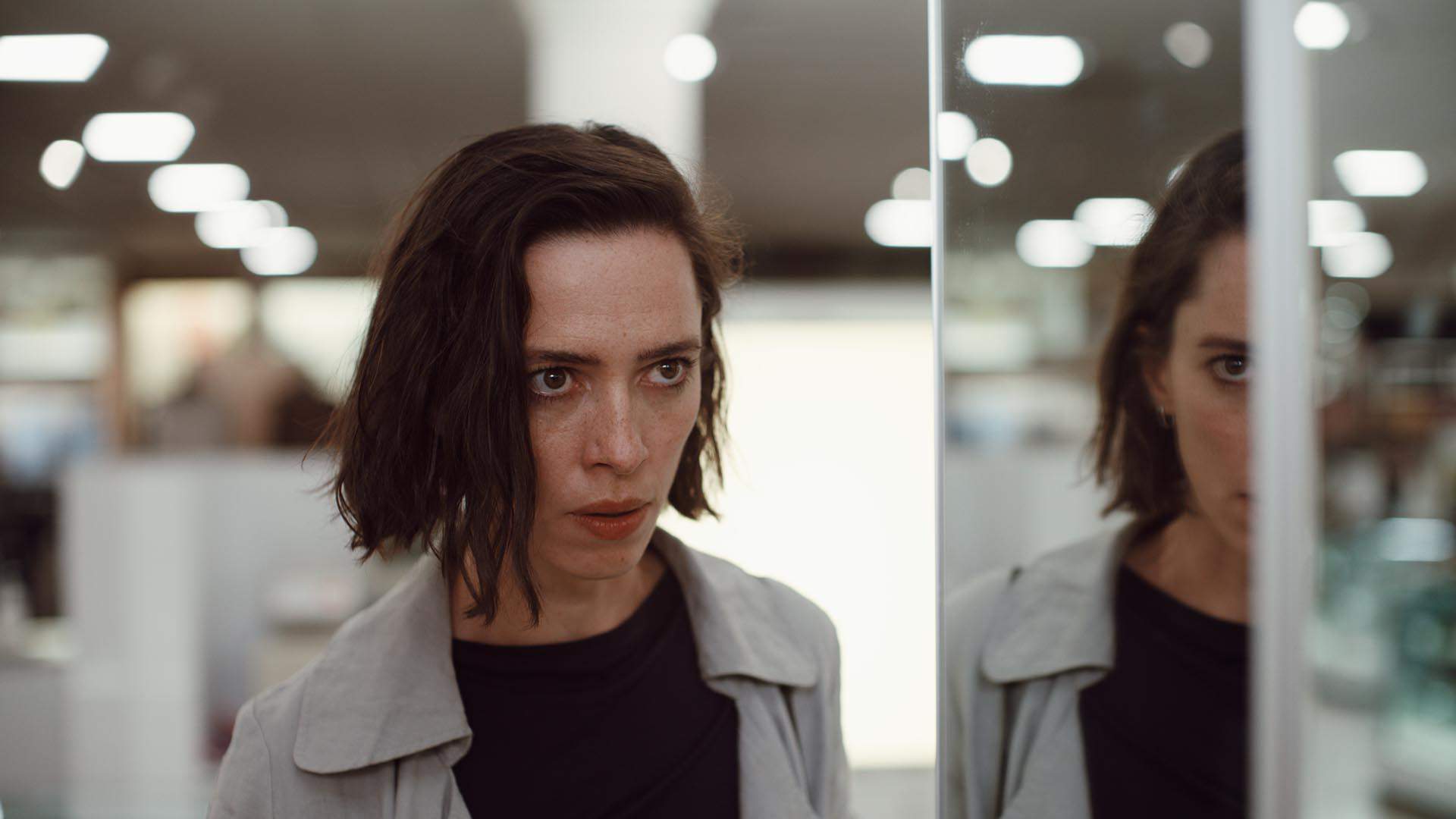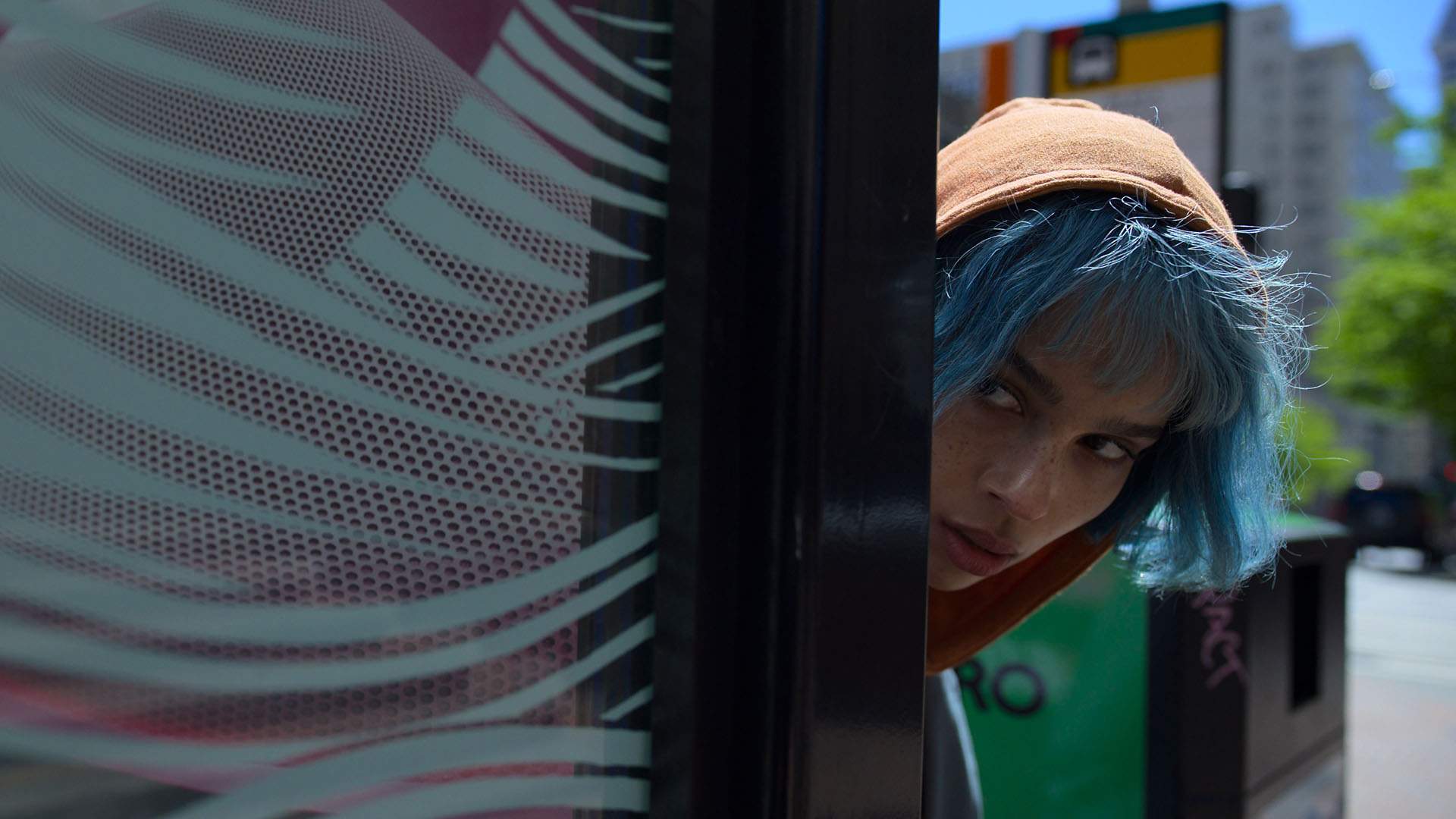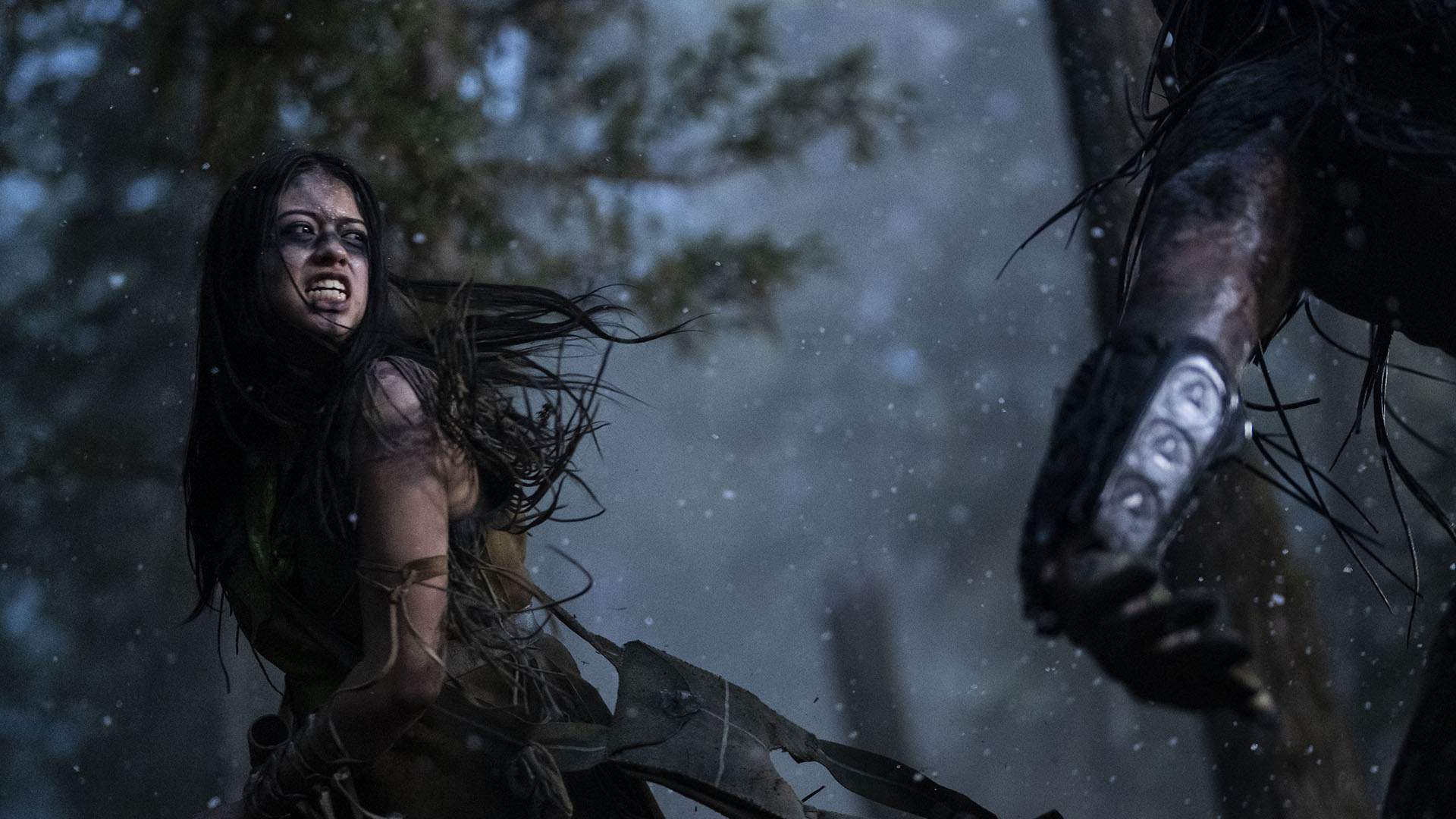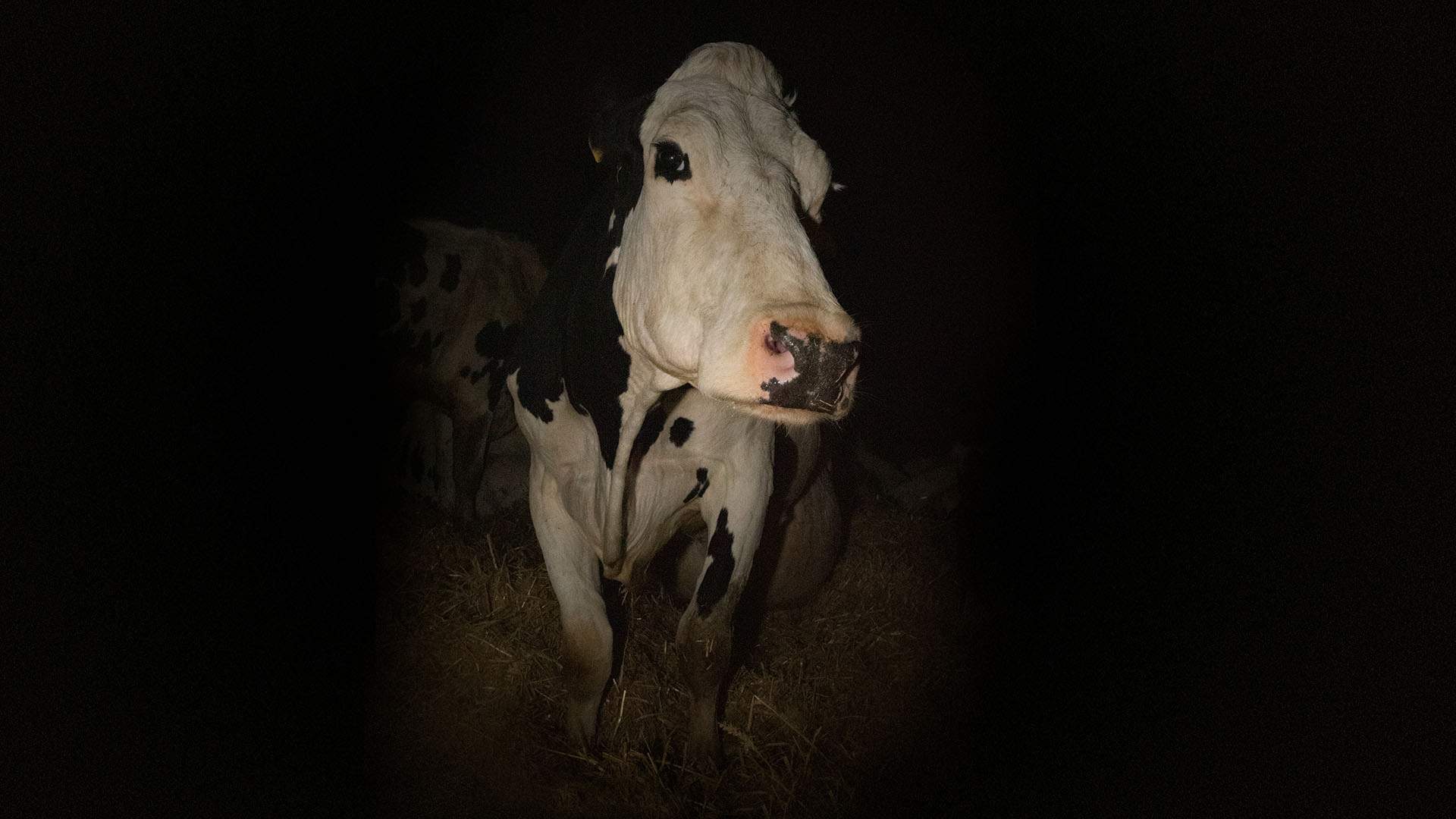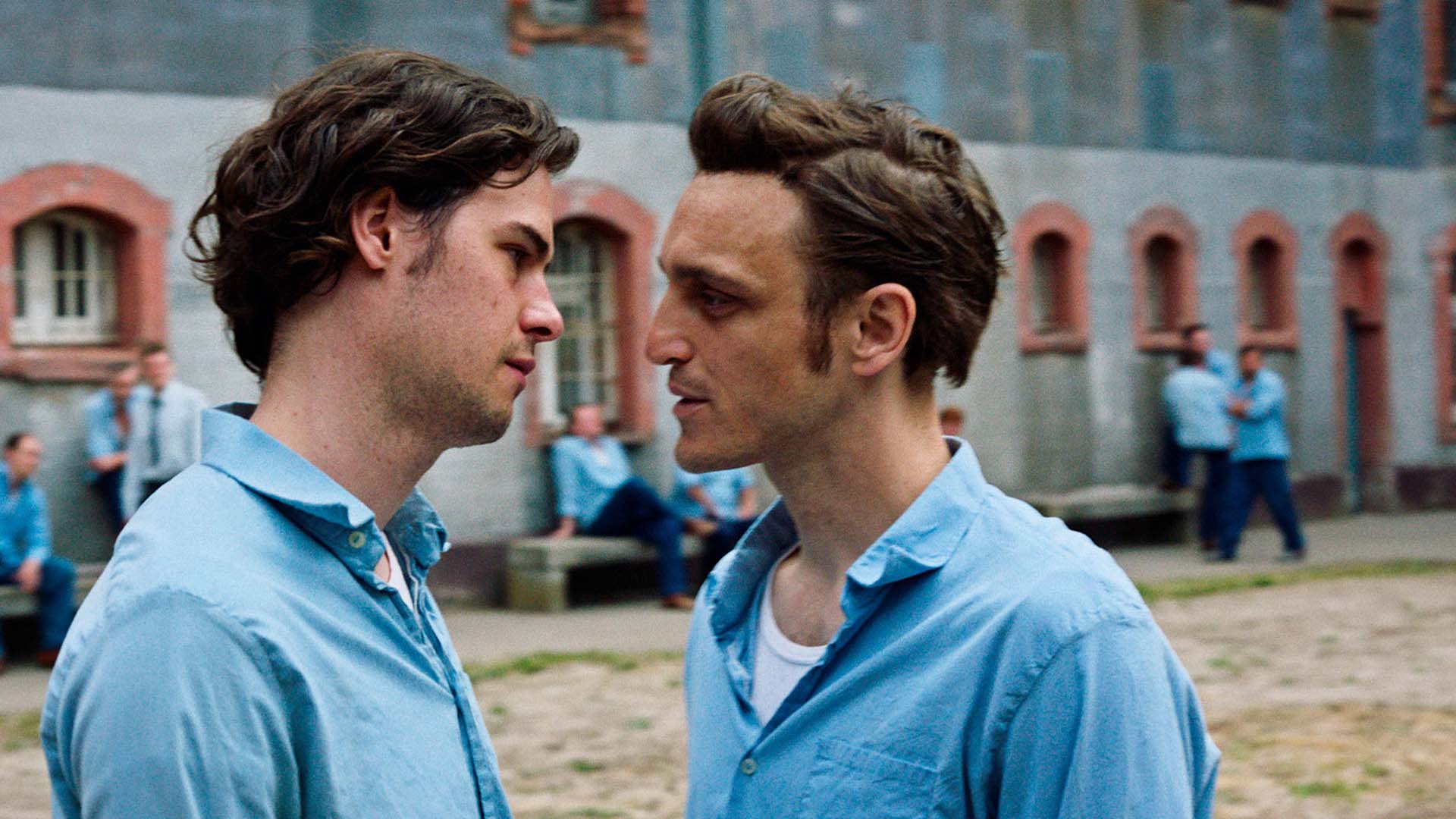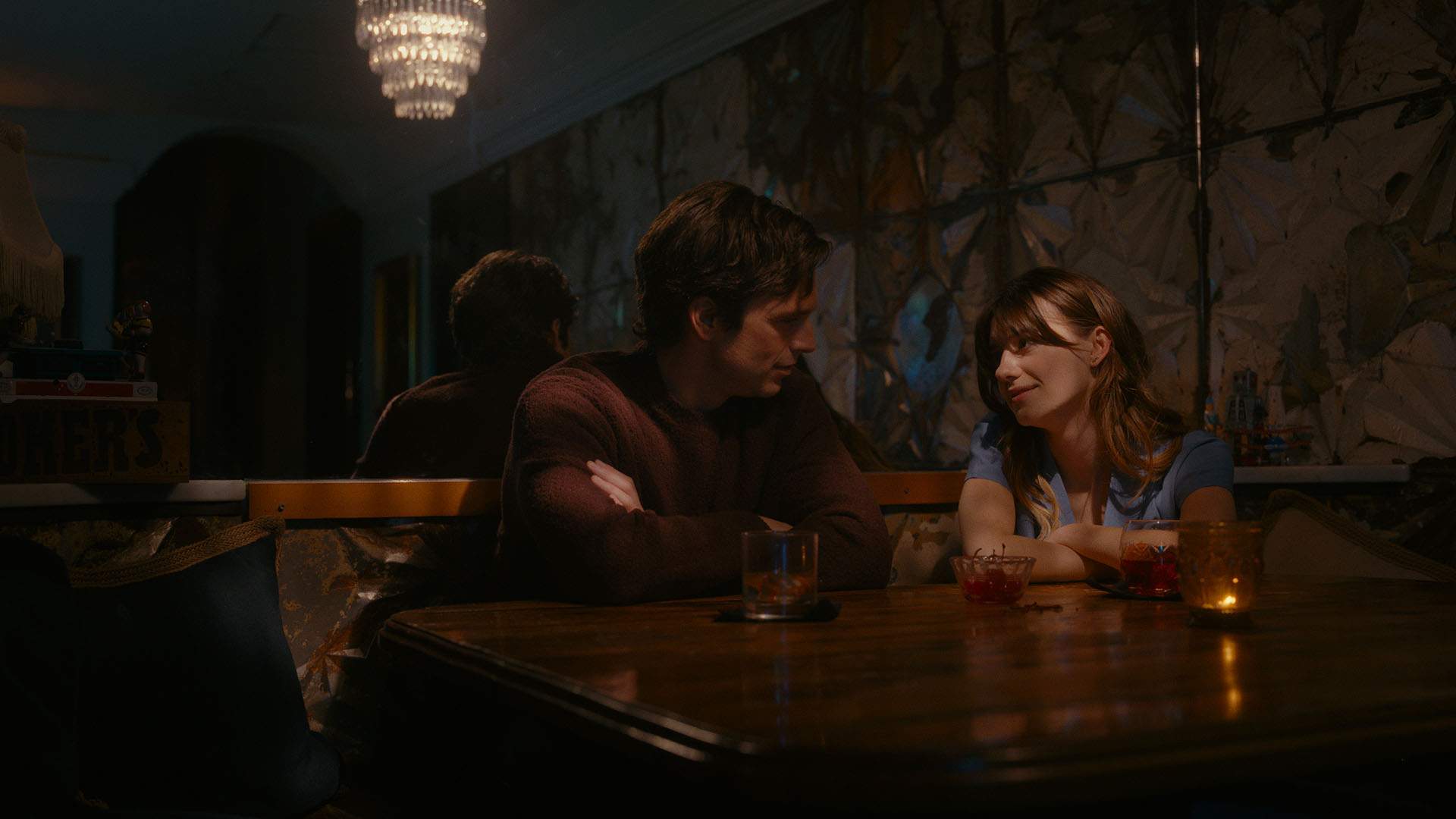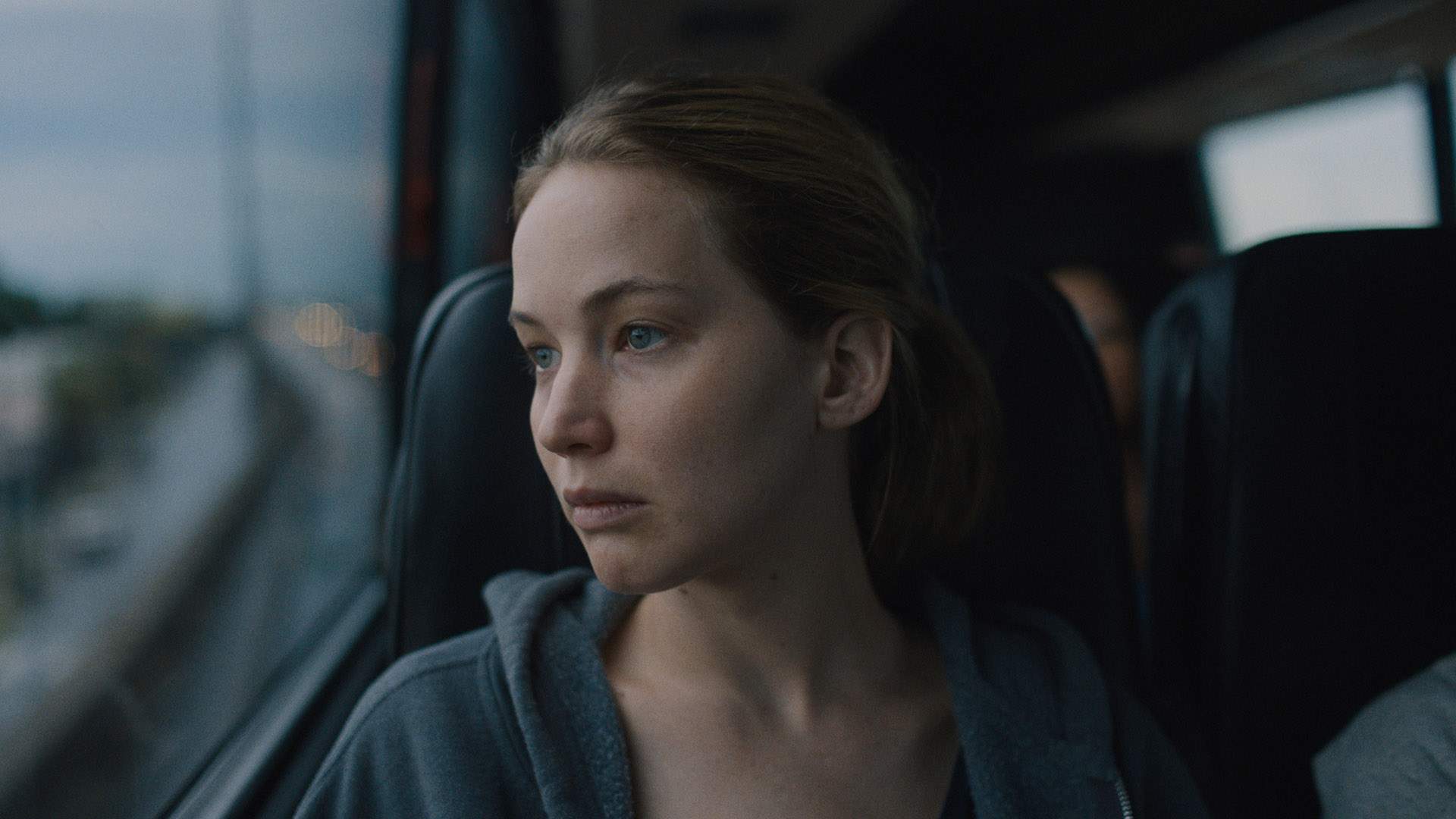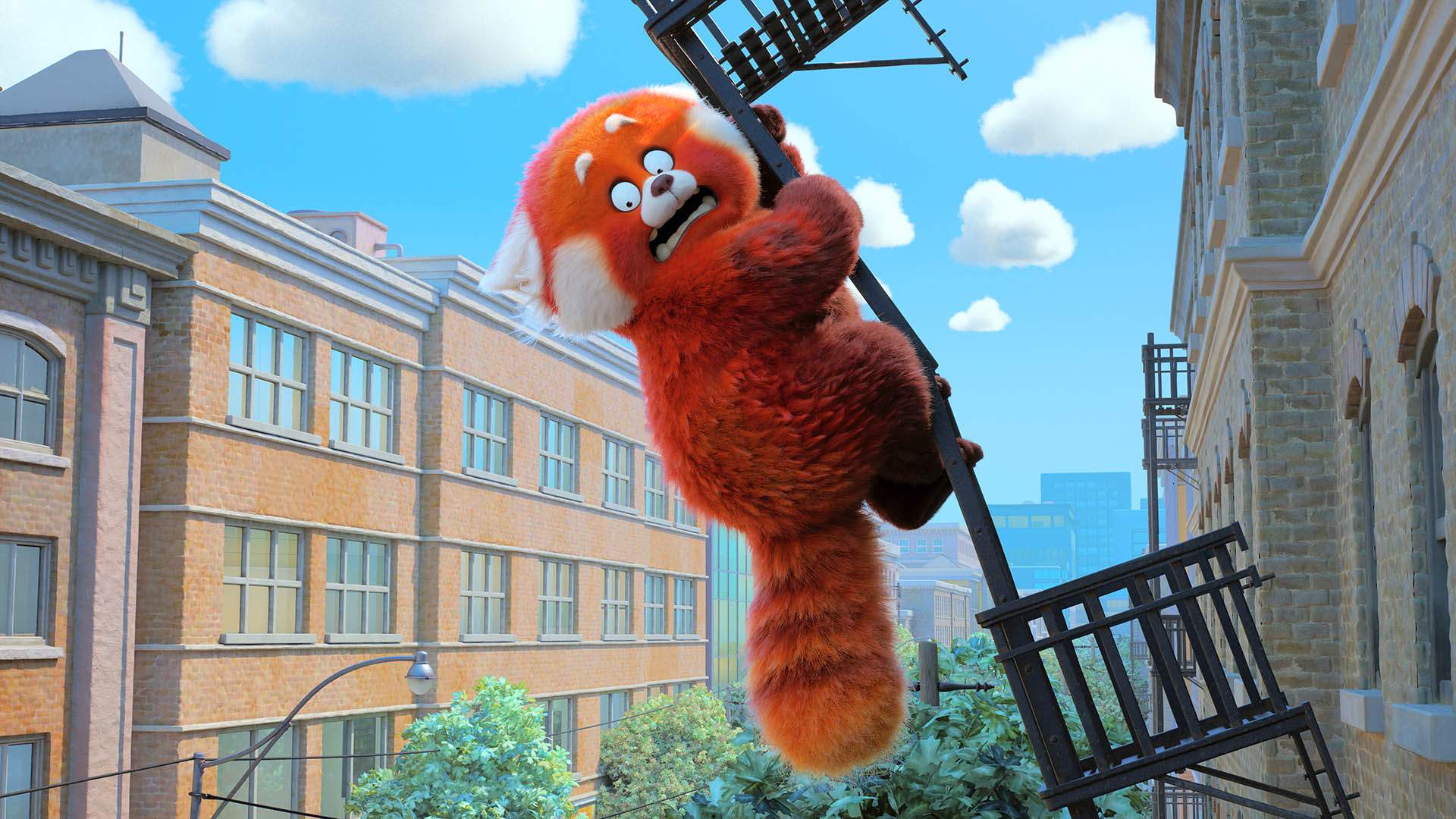The 15 Best Straight-to-Streaming Movies of 2022
These flicks might've bypassed your favourite cinema, but they're still among the year's absolute best.
Cinemas are glorious. There's nowhere better to see a movie. When you're watching a film in the cosy confines of a darkened room, communing devotedly with the projected picture flickering before your eyes, that viewing experience simply can't be beaten. But hitting up your streaming queue instead isn't just for filling time on the couch or catching up on flicks you might've missed on the big screen. And, features that don't get a theatrical run shouldn't be stigmatised by the 'direct-to-streaming' label.
Thanks to the ever-growing array of online viewing options, movie buffs can now see more new movies than ever before. Smaller flicks that were never going to reach cinemas, international favourites that would only screen at festivals Down Under otherwise, new releases by big-name filmmakers not getting funding elsewhere: they've all been making their way to us thanks to streaming. In 2022, that online-only roster of features dropped new must-see titles every single month, and came overflowing with fantastic fare.
Back in July, we picked the best 15 straight-to-streaming films of 2022's first six months. Now, with a whole year behind us, we've cast our eyes of the entire 12-month period. As a result, we've already sung the praises of some of our overall top 15 straight-to-streaming gems for 2022 — but the very best deserve all the love all the time. Catch up with them from your couch ASAP.

KIMI
For the second year in a row, Steven Soderbergh has made one of the year's best movies and it has completely bypassed Australian cinemas. Unlike 2021's No Sudden Move, however, Kimi was always destined for streaming. The latest in his series of paranoid thrillers that also includes Contagion, and once again female-fronted as Haywire, Side Effects and Unsane were too, this Zoë Kravitz-starring standout takes its cues from smart devices, humanity's increasing dependence upon technology, and the kinds of events that a virtual assistant like Siri, Alexa or Google Assistant might eavesdrop on. As a result, Soderbergh has crafted another movie that riffs on a growing area of real-life interest, then turns it into a tense, potent and devilishly smart feature. A bonus: focusing on a protagonist who doesn't feel safe leaving her house, Kimi couldn't better capture how the pandemic has felt without overtly needing to be a COVID-19 film.
Kravitz (The Batman) plays Angela Childs, who works for Seattle-based tech corporation Amygdala from the comfort of her own sprawling loft — and from her own audiophile's dream of a computer setup — listening to snippets of conversation captured by smart speaker Kimi for quality assurance. In one clip, she hears what she believes to be a horrible crime and is compelled to follow up; however, her bosses aren't thrilled about her probing. Complicating matters: after being the victim of an assault a couple of years earlier, Angela suffers from anxiety and agoraphobia, making leaving the house to investigate a fraught task. As he did to particularly stellar effect in Unsane as well, Soderbergh styles his latest psychological thriller after its protagonist's mindset, making unease and suspense drop from every aesthetic choice — camera angles and placement, jittery frames and a voyeuristic perspective all included.
Kimi streams via Neon.

ATHENA
When a director uses a single take for a lengthy sequence, an episode of television or an entire film — even with some editing trickery to help — it usually isn't just a gimmick. As everything from The Bear to 1917 have shown, there's urgency and immediacy in that stylistic approach. Given that Athena plunges into a powderkeg situation in a French neighbourhood that shares the movie's moniker, with the banlieue's residents understandably incensed after the brutal killing of a teenager from their midst by law enforcement, this latest stunner from writer/director Romain Gavras (after the excellent The World Is Yours) was always going to feel unrelenting, inescapably tense and utterly in-the-moment anyway. See also: 2019 French Oscar-nominee Les Misérables, similarly about the response to police violence, which was penned and helmed by Athena's co-screenwriter Ladj Ly. Still, the unbroken shot that opens Gavras' latest spectacular film is up there with 2022's best in any feature.
Long takes pop up often in Athena, which starts with French soldier Abdel (Dali Benssalah, No Time to Die) confronting the fact that his 13-year-old brother Idir (first-timer Mohamed Amri) is dead — and, as seen in online footage, that the cops are responsible. He's managing to keep calm, however, until another of his siblings Karim (debutant Sami Slimane) throws a Molotov cocktail inside a crowded police station. Cinematographer Matias Boucard (Eiffel) captures it all without looking away, and keeps doing the same as they return home, with Athena soon under siege as the authorities swarm in and the home crowd explodes with anger. Even when edits come, this is an unflagging and unflinching feature, as aided by close-up and handheld camerawork, impassioned performances, its topical storyline and staggering action cinematography. Athena uses its aesthetics to make a statement, too, about race, power and inequality — and it firmly knows that this tale can only be a tragedy.
Athena streams via Netflix.

WE'RE ALL GOING TO THE WORLD'S FAIR
"Hey guys, Casey here. Welcome to my channel. Today I'm going to be taking the World's Fair Challenge." So says We're All Going to the World's Fair's protagonist (feature newcomer Anna Cobb) twice to start this absorbing horror film, to camera, in what makes a spectacular opening sequence. Next, an eerie wave of multicoloured light flashes across her face. Watching her response brings the also-excellent She Dies Tomorrow to mind, but Casey has her own viral phenomenon to deal with. She's doing what she says she will, aka viewing a strobing video, uttering a pivotal phrase and then smearing blood across her laptop screen — and she promises to document anything that changes afterwards, because others have made those kinds of reports. Written, directed and edited by fellow feature debutant Jane Schoenbrun, the instantly eerie and intriguing We're All Going to the World's Fair is that record.
Schoenbrun's film is more than that, however. It also charts the connections that spring and splinter around Casey just by joining the online trend, where her videos spark others in return — and the spirals she goes down as she watches, which then sparks a response in her own way, too. A portrait of isolation and alienation as well, while chronicling the after effects of playing a virtual horror game, We're All Going to the World's Fair is also a picture of an always-recorded world. Take your lockdown mindset, your social-media scrolling, all that Zooming that defined the beginning of the pandemic and a gamer vibe, roll them all together, and that's still not quite this arresting movie — which keeps shifting and evolving just like Cobb's enigmatic and evocative performance. The entire flick earns that description and, not that it needs an established name's tick of approval, the fact that The Green Knight and A Ghost Story director David Lowery is an executive producer speaks volumes.
We're All Going to the World's Fair streams via Shudder.

RESURRECTION
Another year, another engrossing thriller starring Rebecca Hall. Another film giving the English actor a new standout performance for her packed resume, too. After proving remarkable in 2021's The Night House, and also turning director with the marvellously moving Passing, Hall plays a woman virtually synonymous with tension in the sleek and twisty Resurrection. Even when her character, Margaret, is calm and empathetic at her job in pharmaceuticals, including while counselling her junior colleagues, unease flickers in her haunted eyes and rigid posture. When she's fussing over her almost 18-year-old daughter Abbie's (Grace Kaufman, The Sky Is Everywhere) comings and goings, such as soon leaving for college, Margaret comes off as overprotective — but with a tormented edge. Resurrection lingers in this feeling, teasing out the details behind it while also making it plain that constantly being on guard can be a reality thanks to traumas and simply life. Indeed, thanks to his ambiguous tale, writer/director Andrew Semans (Nancy, Please) ensures that that sensation remains even when Margaret's demeanour and behaviour gets an explanation.
If a human tooth suddenly showed up in your daughter's wallet, an eerie man from your past (Tim Roth, Sundown) re-emerged after two decades and the worst pain you'd ever experienced was drudged up again, you'd find it impossible to remain composed and collected, too. As Resurrection thrusts Margaret through her own personal horror show, it isn't concerned with simply showing a woman unravelling — rather, it focuses on a woman pushed to her limits by tragedy, malevolence, manipulation and one helluva toxic man. Semans's knack for crafting a skin-crawlingly unsettling atmosphere is immense, and so is his willingness to take gloriously unhinged swings and his talent for casting. It's no wonder that the film can barely look away from Hall, who is stellar from start to finish but next-level astounding during a lengthy monologue and a big confrontation. And as for Roth, creepy doesn't even begin to describe his work here.
Resurrection streams via Neon, Google Play and iTunes.
CAUSEWAY
Trauma is a screenwriter's best friend. If on-screen characters didn't have past stresses to overcome or new hardships to cope with — usually both — then dramatic scripts would barely last a few pages. Neither would horror flicks, or thrillers, or plenty of comedies; however, few films are happy to sit with trauma in the way that (and as well as) Causeway does. Starring Jennifer Lawrence (Don't Look Up) as a military veteran sent home from Afghanistan after being blown up, working her way through rehab and determined to re-enlist as soon as she has medical sign-off, this subtle, thoughtful and powerful movie grapples with several stark truths. It knows that some woes do genuinely change lives, and not for the better. It's well aware that many miseries can't be overcome, and completely alter the person experiencing them. It's keenly cognisant that that simply existing can be a series of heartbreaks, and escaping that cycle can be the most powerful motivator in the world. And, when Atlanta and Bullet Train's Brian Tyree Henry enters the picture as a New Orleans mechanic with his own history, it sees the solace that can be found between people willing to face their tough realities together.
When Causeway begins, Lawrence's Lynsey is freshly out of hospital, and learning how to walk, dress, shower, drive and do all other everyday tasks again. Even then, she still wants to redeploy. Directed by feature first-timer Lila Neugebauer (The Sex Lives of College Girls), and penned by fellow debutants Ottessa Moshfegh, Luke Goebel and Elizabeth Sanders, the film spies the determination in its protagonist's eyes — and the pain she's trying to bury after she goes home to stay with her mother (Linda Emond, The Patient), gets drawn into old unhealthy dynamics, but finds a friend in Henry's kind, eager but haunted James. There's no cross-country drive with a canine, if the similarly themed Dog comes to mind, but rather a willingness to steep in Lynsey and James' complicated emotions. Neugebauer has the perfect central duo for the movie's key parts, too; neither Lawrence nor Henry's resumes are short on highlights, acclaim or award nominations, but their respective textured, naturalistic and deeply felt performances in Causeway ranks among each's best work.
Causeway streams via Apple TV+.
FRESH
Finally, a film about dating in the 21st century with real bite — and that's unafraid to sink its teeth into the topic. In this hit Sundance horror-comedy, Normal People's Daisy Edgar-Jones plays Noa, and once again gets entangled in a romance that'll leave a mark; here, however, the scars aren't merely emotional. Swiping right hasn't been doing it for Fresh's protagonist, as a comically terrible date with the appropriately named Chad (Brett Dier, Jane the Virgin) demonstrates early. Then sparks fly the old-fashioned way, in-person at the supermarket, with the curiously offline doctor Steve (Sebastian Stan, Pam & Tommy). Soon, he's whisking her away to a secluded spot for the weekend — a little too swiftly for Noa's protective best friend Mollie's (Jojo T Gibbs, Twenties) liking, especially given that no one can virtually stalk his socials to scope him out — and that getaway takes a savage and nightmare-fuelling twist.
If Raw met Ex Machina, then crossed paths with American Psycho and Hostel, and finally made the acquaintance of any old rom-com, Fresh still wouldn't be the end result — but its tone stems from those parts, as do some plot points and performances, and even a few scenes as well. First-time feature director Mimi Cave doesn't butcher these limbs, though, and screenwriter Lauryn Kahn (Ibiza) doesn't stitch them together like Frankenstein's monster. As anchored by the excellent Edgar-Jones and Stan, there's care, savvy, smarts and style in this splatter-filled, satirical, brutal, funny, empowered and sweet film. Its twists, and its cutting take on predatory dating, are best discovered by watching, but being turned off apps, men and meat in tandem is an instant gut reaction.
Fresh streams via Disney+.

COW
As its name so clearly explains, Cow devotes its frames to one farmyard animal — and it's one of the most haunting films of the past few years. It's the third feature to take its title from a four-legged critter in the past two years, after the vastly dissimilar Pig and Lamb. It's also the second observational documentary of late to peer at the daily existence of creatures that form part of humanity's food chain, following the also-exceptional Gunda. And, it also joins 2013's The Moo Man in honing its focus specifically upon dairy farming, and in Britain at that. But the key to Cow is Andrea Arnold, the phenomenal filmmaker behind Fish Tank, Wuthering Heights, American Honey and the second season of Big Little Lies. She sees Luma, her bovine protagonist, with as much affection and understanding as she's ever seen any of the women who've led her projects. While watching, viewers do as well.
Starting with the birth of Luma's latest calf — and, in the beginning, taking detours to see how it's faring as well — Cow unfurls with the rhythm of its agricultural setting. It's the rhythm of Luma's life, too, as she's milked and fed, moos for the offspring that's taken away too quickly, and is soon impregnated again. There's no doubt where the documentary is headed, either. There's simply no shying away from the fact that Luma and cattle like her only exist for milk or meat. Without ever offering any narration or on-screen explanation, Arnold stares at these facts directly, while also peering deeply into its bovine subject's eyes as often as possible. The result is hypnotic, inescapably affecting, and also features the best use of Garbage's 'Milk' ever in a movie.
Cow streams via DocPlay.

I'M YOUR MAN
Since 2013, any film that's involved making an emotional connection with artificial intelligence has brought Her to mind. Since 2014, any movie about human-android relationships has conjured up Ex Machina as well. And, since 2007, any flick that focuses on the companionship that a lonely human soul might find in an artificial companion has walked in Lars and the Real Girl's footsteps, too. In smart, perceptive and warmly humorous German gem I'm Your Man, however, it's a woman who is opening her life to a male presence — an AI-run robot designed to be her perfect match — and she's not too happy about it. Archaeologist Dr Alma Felser (Maren Egger, I Was at Home, But) is merely and begrudgingly testing out the technology that brings Tom (Dan Stevens, Eurovision Song Contest: The Story of Fire Saga) into her life, for three weeks at the behest of her boss at Berlin's Pergamon Museum, and solely for the good of science.
I'm Your Man is a rom-com, which means exactly what viewers think it does going in: that Alma slowly starts rethinking her position on Tom. But that's about the only aspect of this thoughtful, witty and yearning exploration of what it means to be human and to truly connect that does what's expected. Fresh from winning an Emmy for directing Unorthodox — and making this before helming She Said — German filmmaker Maria Schrader helms a charming and insightful take on what's beginning to be an oft-considered topic, and is unpacked in a moving and delightful way in her hands. Her film is also extremely well cast, with Egger thoroughly deserving her 2021 Berlinale Silver Bear for Best Acting Performance as Alma, and Stevens pitch-perfect as the supposed robotic man of her dreams — who just wants love himself.
I'm Your Man streams via Google Play and iTunes.

NANNY
In Nanny, Aisha (Anna Diop, Us) is haunted, both when she's asleep and awake. Her slumbers are disturbed by nightmares, but seeing rising waters and unwelcome spiders isn't just relegated to when the Senegalese woman in New York closes her eyes. A gut-wrenching sense of unease also lingers while she works, after securing a childminding job for rich Upper East Side residents Amy (Michelle Monaghan, Echoes) and Adam (Morgan Spector, The Gilded Age). Their five-year-old daughter Rose (Rose Decker, Mare of Easttown) adores Aisha — more than her parents, it often seems. And, the nannying gig helps Aisha distract herself from missing her own son, who she's desperately trying to bring over to the US. She's haunted by his absence, too, and by the stolen snippets of conversation she gets with him on the phone, constantly juggling the time difference. The supernatural disturbances plaguing Aisha and her feelings about leaving her child in Senegal to chase a better future for them both are clearly linked, although Nanny is atmospheric and insightful rather than blunt and overt.
The first horror film to win Sundance Film Festival's Grand Jury Prize, this evocative effort hails from writer/director Nikyatu Jusu, who makes her feature-length debut with quite the calling card. 2022 isn't short on affectingly moody and evocative female-focused thrillers with a maternal bent — see: Resurrection above, which also debuted at Sundance — but Nanny's addition to the fold is deeply steeped in Aisha's immigrant experience. Thanks to all that otherworldly water, it feels like it's always steeping, in fact, soaking in the troubles and struggles of trying to snatch even a piece of the American dream when you're not wealthy, white and originally from the so-called land of the free. Also prominent: the dispiriting minutiae of Aisha's day, aka exactly what she has to endure to even have a chance of gaining what comes easily and obliviously to her employers. Like its central figure, Nanny is haunted several times over, too.
Nanny streams via Prime Video.
PREY
No stranger to voicing iconic lines, Arnold Schwarzenegger uttered one of his best-known phrases yet 35 years ago, in a franchise that's still going today. "If it bleeds, we can kill it" has been quoted frequently ever since — even by champion AFL coaches — and it's no spoiler to mention that it pops up again in the latest Predator film Prey. Trotting out that piece of dialogue won't surprise anyone, but this fine-tuned action-thriller should. It's one of the saga's best entries, serving up a lean, taut and thoughtful kill-or-be-killed battle set in the Comanche Nation 300 years ago. The Predator series hasn't been big on highlights over the years — Predator 2 is forgettable to put it nicely, 2010's Predators is effective, 2018's The Predator favoured its throwback vibes above all else, and the two terrible Alien vs Predator cross-over films are best left forgotten — however Prey not only breathes new life into it, but paves a welcome path for more. (Bring on a Prey sequel ASAP.)
The overall premise remains the same, with the franchise's ruthless, brutal and technologically advanced alien species using earth as its hunting ground as the series has already established — and showing zero concern about leaving a body count. Trained healer Naru (Amber Midthunder, The Ice Road) is the first to notice that something is awry this time, spotting the predator's spaceship in the sky and taking it as a sign to follow her dream to become a hunter herself. Alas, that isn't the done thing. In fact, she's spent her entire life being told that she can't be like her brother Taabe (first-timer Dakota Beavers), and should focus on her assigned role instead. Now, even with an extra-terrestrial foe wreaking havoc, she's still dismissed at every turn. Midthunder plays Naru as a fierce, determined, persistent and resourceful force to be reckoned with, while writer/director Dan Trachtenberg — co-scripting with Jack Ryan's Patrick Aison — gives all things Predator the taut focus, canny shift and fresh feel he also gave the Cloverfield saga with 10 Cloverfield Lane.
Prey streams via Disney+.

HELLBENDER
Meet the Adams family — no, not the creepy, kooky, mysterious and spooky characters that've featured on pages and screens for decades (including in 2022 newcomer Wednesday, plus two terrible recent animated flicks), but the filmmaking collective comprised of couple Toby Poser and John Adams, plus their daughters Zelda and Lulu Adams. The quartet might be missing a letter from their well-known counterparts' names, but they're just as fond of all things horror. Case in point: their second feature Hellbender, a self-financed standout that's both a spellbinding tale of witchcraft and a clever coming-of-age story. It starts in a house in the woods, and also spends most of its time there. It includes the arrival of an unexpected stranger, shattering the status quo. But formulaic and by-the-numbers, this must-see isn't. In making first-rate use of its setting, and of a cast that's primarily comprised of Adams family members, it's also a masterclass in lockdown filmmaking.
In the most expected aspect of Hellbender, the film's name does indeed refer to a punk-metal band, with 16-year-old Izzy (Zelda Adams, The Deeper You Dig) and her mother (Toby Poser) its sole members. No one else has ever heard them play, either, given that Izzy is both homeschooled and confined to the family's sprawling mountainside property, as she has been since she was five. Her mum tells her that she can't venture into town or around other people due to a contagious autoimmune disease; however, when a lost man (John Adams) wanders their way and mentions that his teenage niece Amber (Lulu Adams) lives nearby, Izzy gets the confidence to go exploring. As both written and directed by three out of four Adams family members — all except Lulu — Hellbender proves an impressive supernatural affair from its opening occult-heavy prologue through to its astute take on teen rebellion. Here's hoping this Adams family spirits up more DIY horror delights soon, too.
Hellbender streams via Shudder.
APOLLO 10 1/2: A SPACE AGE CHILDHOOD
In 1969, the year that Apollo 10 1/2: A Space Age Childhood is set, writer/director Richard Linklater was nine years old and living in Houston, Texas. This lovely animated film happens to follow a boy around the same age in the same city — and trust the filmmaker behind Boyhood, Dazed and Confused, and the glorious trio that is Before Sunrise, Before Sunset and Before Midnight to make viewers who weren't there then (who weren't even alive and have never been to America, too) to feel as nostalgic about the place and era as he clearly does. As narrated by his Bernie and The School of Rock star Jack Black, the film's entire middle section dances through memories of the time and city with infectious enthusiasm, but its biggest dose of affection radiates towards the technological promise of the 60s. The Mercury, Gemini and Apollo missions were rocketing into space and it patently felt like anything was possible, a sensation so marvellously captured in each second of Apollo 10 1/2.
Jumping back into the rotoscoped animation that served Linklater so well in Waking Life and A Scanner Darkly, this loving ode to years and moods gone by also sports a delightful premise. As his older guise (Black) explains, young Stan (debutant Milo Coy) was an ordinary Houston kid with a NASA-employed dad (Bill Wise, Waves), doting mum (Lee Eddy, Cruel Summer) and five older siblings when he was approached by two men (Shazam!'s Zachary Levi and Top Gun: Maverick's Glen Powell) to help them with a problem. In the lead up to Apollo 11, it seems that NASA accidentally built the lunar module a couple of sizes too small, so they need a kid — Stan — to help them by going to the moon to test things out before Neil Armstrong, Buzz Aldrin and Michael Collins make their famous trip in a bigger version. That fantastical idea feels ripped from Linklater's childhood dreams, and it well might be; it also makes for a warm and charming entry point into a movie that's as much about life's ups and downs, the bonds of family and the wide-eyed optimism of youth as it is about heading to space.
Apollo 10 1/2: A Space Age Childhood streams via Netflix.

ASCENSION
Ascension may not be one of this year's Oscar-winners, losing out to the also fantastic Summer of Soul (...Or, When the Revolution Could Not Be Televised), but it'll always be among 2022's nominees. More than that, this two-time Tribeca Film Festival winner will forever remain one of the most arresting documentaries of the past 12 months as well. Helming her first feature-length doco, filmmaker Jessica Kingdon turns her gaze to the Chinese dream — and what she sees, while situated in a very specific cultural context by design, is a clear and easy sibling to its American counterpart. That's part of the statement her film makes, all just by watching on patiently but meticulously as people go about their lives.
Starting with factory recruitment on the streets, then moving into mass production, then climbing the social hierarchy up to the rich and privileged, Ascension explores employment and consumerism — and what they mean in an everyday sense in modern-day and modernised China. It's a portrait of the needs that make working on assembly lines a necessity, and of the dreams that inspire every climb, rung by rung, up the societal ladder. Some folks build sex dolls, their uncanny valley-esque forms adding an eerie mood. Others take lessons on etiquette for service jobs, including about not letting your face betray your emotions, and the tone is also unsettling. Observational to a mesmerising degree, Kingdon's exceptional film lets its slices of life and the behaviour, attitudes and patterns they capture do the talking, and they all speak volumes. Indeed, what a clever, telling, incisive and surreal story they unfurl.
Ascension streams via Google Play and iTunes.

TURNING RED
What'd happen if the Hulk was a teenage girl, and turned into a giant, fuzzy, super-cute red panda instead of going green and getting ultra-muscular? Or, finding a different riff on the ol' werewolf situation, if emotions rather than full moons inspired a case of not-quite-lycanthropy? These aren't queries that most folks have thought of, but writer/director Domee Shi certainly has — and they're at the core of Pixar's Turning Red, her debut feature after winning an Oscar for 2018 short Bao. As many of the animation studio's movies do, the film takes its title literally. But, it also spins the usual Pixar question. Turning Red does indeed wonder what'd happen if red pandas sported human-style emotions; however, the Disney-owned company has been musing on people becoming other kinds of critters of late, with particularly astute and endearing results here.
The movie's focus: 13-year-old Chinese Canadian Meilin Lee (Rosalie Chiang, also making her film debut). The year is 2002, and she loves meeting her strict but doting mum Ming's (Sandra Oh, The Chair) expectations, hanging out with her pals and obsessing over boy band 4*Town. And while her mother doesn't approve of her friends or her taste in music, Mei has become accustomed to juggling everything that's important to her. But then, after a boy-related mishap, the red panda appears. Mei goes to bed feeling normal, albeit angsty and upset, only to wake up looking like a cuddly creature. Like werewolf tales about teenage boys tend to be, Turning Red is all about puberty and doesn't hide it — and whether it's tackling that head-on, pondering generational trauma or showing its rampant love for boy bands, it sports sweetness, soul and smarts.
Turning Red streams via Disney+. Read our full review.

THE JANES
In the perfect version of 2022, watching The Janes would resemble unpacking a time capsule. In this documentary's frames, remnants of life during 60s and 70s America flicker across the screen — visions of what the US was like for women before the Supreme Court's landmark 1973 Roe v Wade ruling. But, devastatingly, that's not how viewing this Tia Lessin (Citizen Koch)- and Emma Pildes-directed film feels like now thanks to recent developments with America's current conservative-skewed highest judicial body. Accordingly, this powerful doco might just offer a window into the possible future by cataloguing a dark and heartbreaking part of the past. Its focus: members of Chicago's The Jane Collective, who stepped in to provide safe, affordable but also highly illegal abortion services when terminating pregnancies, and therefore giving women agency over their choices and their very existence, was a crime across the nation.
Fellow 2022 highlight Happening has charted the same territory at around the same time, but in France and fictionalised. Back in 2020, the phenomenal Never Rarely Sometimes Always examined the situation in the US recently — well, before this year's Supreme Court ruling undoing Roe v Wade — as well. Each of the above, and The Janes as well, unsurprisingly makes for harrowing, infuriating, heart- and gut-wrenching viewing. In this instance, the film sticks with current-day talking heads and archival footage to step through why the service provided by Jane, aka the Abortion Counseling Service of Women's Liberation, was necessary and important. The brave and heroic women involved talked through the details with clarity and potency, as do some of the men who assisted, whether as husbands who were also lawyers, doctors, or construction workers-turned-abortionists. Of course, unlike in the times chronicled, women never come second to men in this gripping and resonant doco.
The Janes streams via Neon.

Looking for more viewing highlights? Check out our list of film and TV streaming recommendations, which is updated monthly.
We've also picked 15 exceptional films that hardly anyone saw in cinemas in 2022, the 15 best returning TV series of the year, 2022's 15 best new shows and 15 other excellent TV newcomers from the past 12 months that you might've missed.
